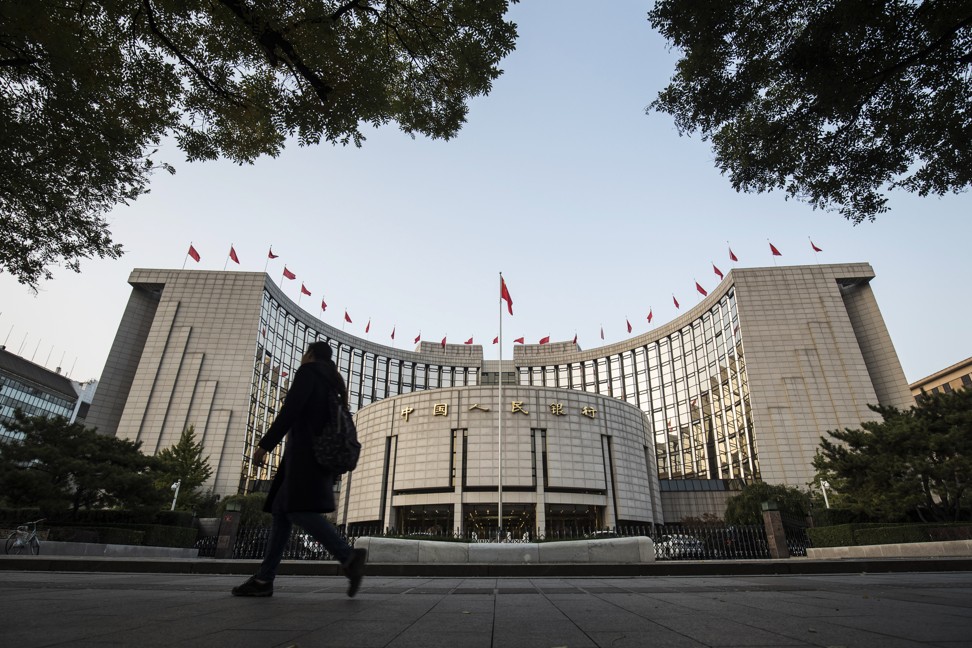
China gives banks incentive to buy bonds to support public investment push
Lenders will no longer be required to hold provisions against local government debt risks
China’s financial regulators have reportedly given commercial banks a new incentive to boost investment in local government bonds as Beijing tries to stabilise economic growth through increased infrastructure spending.
Regulators will remove a requirement that banks hold provisions against the possible default of provincial and municipal government debt that they purchase, state-run China Securities Journal reported on Tuesday, citing several unnamed sources.
Currently, banks are required to hold reserves equal to 20 per cent of the value of such debt.
The move effectively reduces banks’ costs to purchase such bonds, freeing up funds that will allow them to buy more, the newspaper said.
Just how big is China’s ‘hidden’ debt pile? Beijing orders local cadres to find out
Removing the reserve requirement means local government securities will be on the same regulatory footing as bonds sold by the Ministry of Finance and the official China Development Bank. With their higher yields, local government bonds will be attractive investments for banks.

Beijing has budgeted the sale of 1.35 trillion yuan (US$196.79 billion) in local “special purpose” bonds this year, all of which will be used to fund local projects such as roads, subways, shanty-town redevelopment and sewage disposal plants.
Some 563 billion yuan of local special purpose bonds were sold in the first seven months of this year, according to finance ministry data released on Tuesday. That leaves about 800 billion yuan of the annual quota unfulfilled.
According to a circular released two weeks ago, the ministry wants to reach the full annual quota for local government bond sales by the end of October, which would require average monthly sales of 267 billion yuan in each of the next three months.
Chinese exporters hit by trade war to get help as Beijing orders banks to lend more
Local government bond sales had been subdued until last month due to the combined effects of government campaigns to reduce financial leverage and to control rising local government debt.
But Wang Jun, chief economist at Zhongyuan Bank, said the situation changed after the Politburo, China’s top decision-making body, pledged in late July to take steps to stabilise the economy, which had been weakened by the deleveraging campaign and the trade war with the US.
“The core [of the Politburo programme] is the stabilisation of investment – infrastructure investment in particular,” Wang said. Most such investment is funded and carried out at the provincial and municipal government levels.
Infrastructure spending was once the main driver of the economy, but its growth slowed sharply to 5.7 per cent in the January-July period from nearly 20 per cent a year ago, according to the National Bureau of Statistics.

Regulators have taken a series of steps to support a rebound in infrastructure investment. Last month, banks were told that low-rated corporate debt could be used as collateral to get loans directly from the central bank. And the banking regulator said last weekend that lenders should continue funding local government projects facing short-term liquidity problems rather than “blindly cutting off loans”.
Low-hanging fruit and a mountain of debt – how China’s credit binge is playing out
Local government bonds are now a good investment for banks, given their lower effective cost and higher returns.
“Currently there are not many good assets for banks to invest in. Local bonds are an acceptable choice because they still bear certain guarantees from [local] governments and the prospect for market liquidity has improved,” Wang said.
Provincial governments lining up to sell bonds in the coming weeks include Heilongjiang, Guizhou and Sichuan, according to data from ChinaBond. Sichuan province plans to sell 4.9 billion yuan of seven-year bonds with the coupon interest rate set at 3.95 per cent.
To lure more investors, the ministry has suggested procedures be simplified and proposed an increase to coupon interest rates of 40 basis points.

